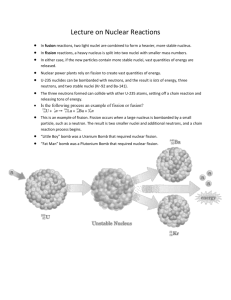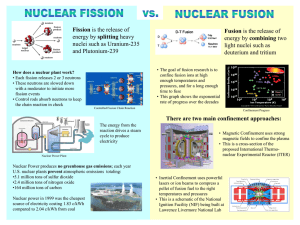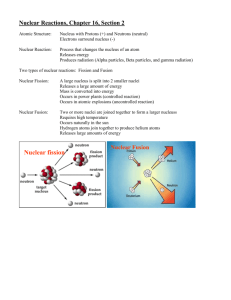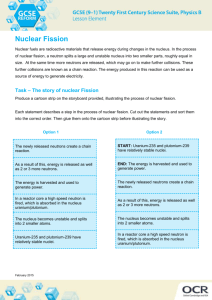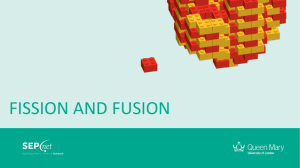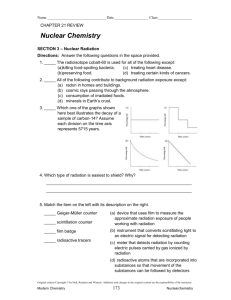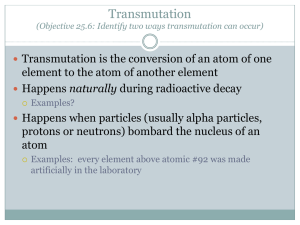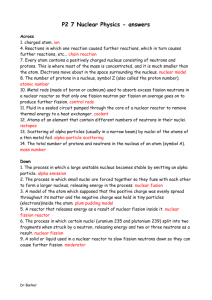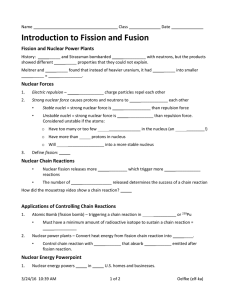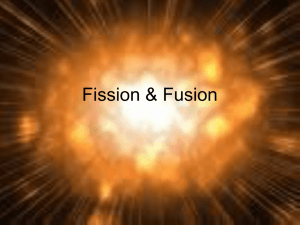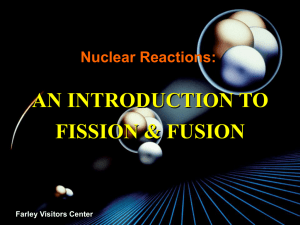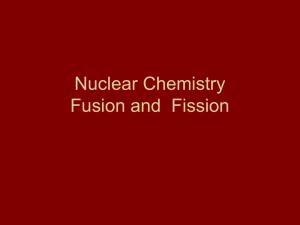Nuclear Fission & Fusion PPT
advertisement
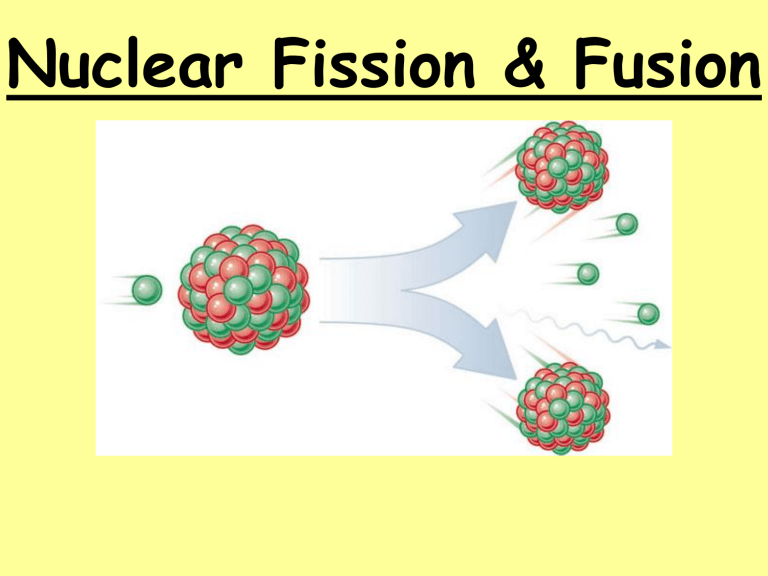
Nuclear Fission & Fusion History: Hahn & Strassman (1939) •Bombarded Uranium-235 samples with neutrons expecting the Uranium-235 to capture neutrons •Instead, the products showed different chemical properties that they could not explain Meitner & Frisch •Explained Hahn & Strassman results. •Instead of heavier Uranium, it had split into smaller elements = Nuclear Fission Nuclear Forces same 1. Electric repulsion – ________ charge particles repel each other 2. Strong Nuclear Force – causes protons and attract each other neutrons to ________ greater •Stable Nuclei = strong nuclear force is ________ than repulsion force •Unstable Nuclei = strong nuclear force is less ________ than repulsion force oHave too many or too few neutrons in nucleus oHave more than 83 protons in nucleus oWill decay into a more stable nucleus Nuclear Fission – splitting of heavier nuclei into lighter nuclei. 235 92 U 1 + 0 n 137 56 Ba 84 + 36 Xe 1 +15 0 + energy How much energy? E=mc2 _______= Energy _______ mass x (_____ speed of _ _____) light 2 n c=3.0x108 mass defect E=mc2 explains _____ _____ (total mass of nucleus is less than sum of individual particles) Nuclear Chain Reactions: •Nuclear fission releases more neutrons which trigger more fission reactions •The number of ________ neutrons released determines the success of a chain reaction Applications of Controlling Chain Reactions 1. Atomic Bomb (fission bomb) – Triggering a chain reaction in U-235 or Pu-239 Must have a minimum amount of radioactive isotope CRITICAL MASS to sustain a chain reaction =_________ _______ 2. Nuclear Power Plants – Convert heat energy from fission electricity chain reaction into __________. control _____ rods that Control chain reaction with ________ absorb ________ neutrons emitted after fission reaction. Nuclear Fusion - Energy released when two light nuclei combine or fuse •However, a large amount of energy is required to start a fusion reaction: repulsion forces o Need this energy to overcome ________ of protons. o Extremely high temperatures can provide start-up energy. More energy in fusing hydrogen that fission of uranium Nuclear Fusion Stars energy is produced through fusion reactions Fusion occurs until Fe is produced because less energy is released than required to fuse Fe nuclei = Star ____ burns ____ out _____ Cold Fusion: Efforts are being made to start and sustain a fusion reaction at lower temperatures, in other words with a lower amount of input energy
